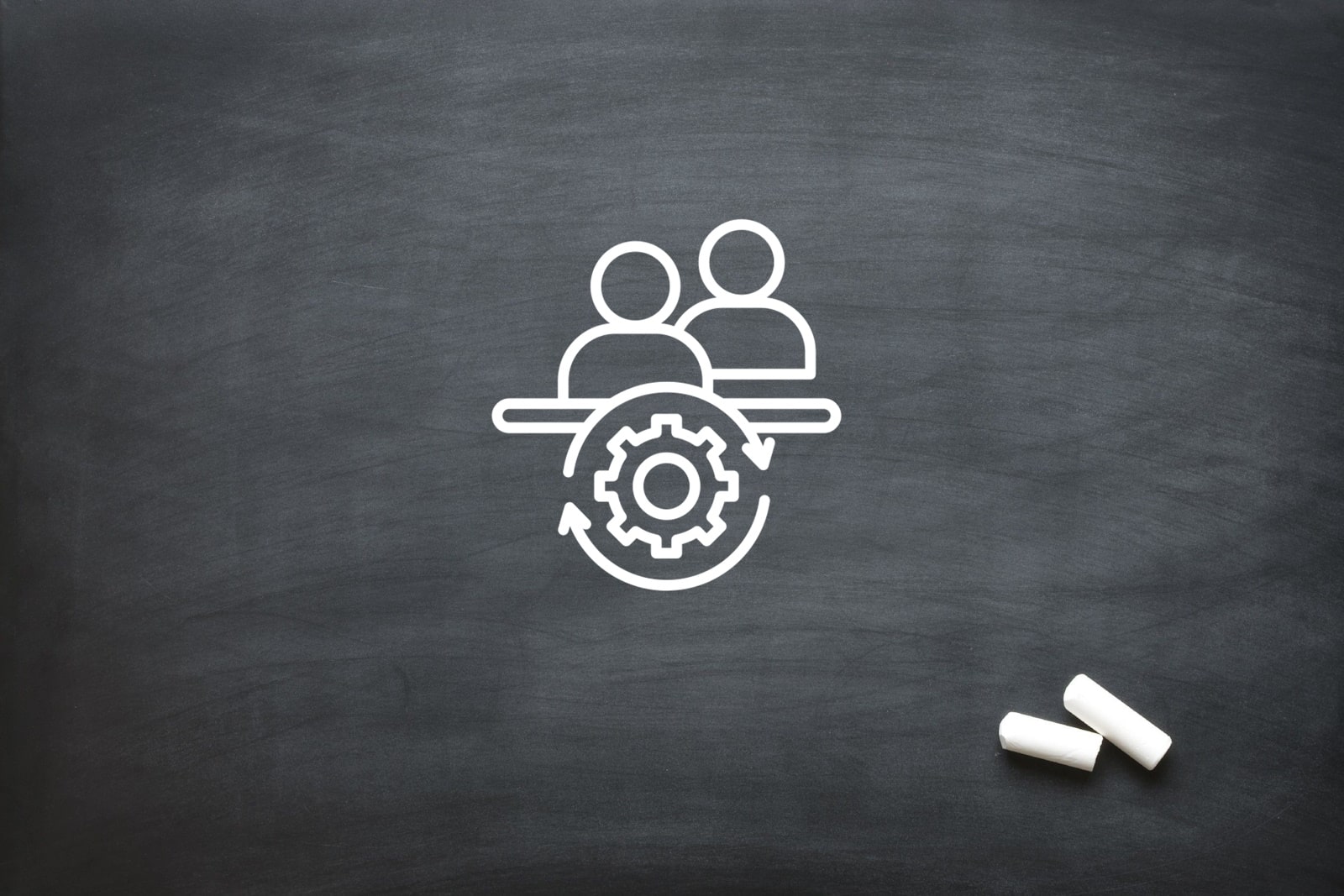
Mentorship and Personalisation in LMS
South Africa’s workforce is experiencing rapid transformation, driven by technological advancements, demographic shifts, and a growing demand for highly skilled professionals. Organisations are increasingly recognising that traditional training programmes alone cannot prepare employees for the complex challenges of modern workplaces. Structured mentorship programmes powered by learner management systems offer a unique solution by combining personalised learning, career guidance, and measurable development outcomes. These programmes not only support individual growth but also enhance organisational performance, engagement, and succession planning.
Learner management systems provide a centralised, scalable platform to manage mentorship initiatives, ensuring consistency while offering flexibility for diverse workplace environments. South Africa, as the largest e-learning market on the continent, demonstrates high adoption of digital learning technologies in both corporate and public sectors. By leveraging learner management systems, organisations can provide employees with adaptive learning pathways, measurable competencies, and structured guidance that aligns with both career aspirations and organisational objectives.
Mentor Identification and Screening
The foundation of an effective mentoring programme is the careful identification and screening of suitable mentors. Organisations must ensure mentors possess not only the technical skills and knowledge relevant to their field but also the interpersonal aptitude to guide, support, and inspire mentees. Learner management systems facilitate this process by allowing organisations to create mentor profiles, track competencies, and conduct readiness assessments. Nomination forms, digital questionnaires, and competency verification modules ensure mentors meet predefined criteria, including experience, availability, and alignment with organisational culture.
Additionally, learner management systems enable structured mentor accreditation. Mentors can complete micro-courses on coaching skills, ethical responsibilities, and cultural competency, earning digital badges that certify their readiness. This standardised approach ensures mentors are prepared for their roles while providing HR teams with measurable metrics to monitor participation. Structured screening through learner management systems reduces subjectivity, strengthens programme integrity, and increases the likelihood of successful mentor–mentee relationships.
Mentee Matching and Goal Setting
Matching mentees with the right mentors is essential for programme effectiveness. Learner management systems enable data-driven matching by considering skill gaps, career objectives, and personal preferences, such as language or cultural alignment. By integrating these factors, organisations can ensure mentees are paired with mentors who are both qualified and well-suited to their professional development needs. LMS platforms can also suggest optimal pairings based on competency frameworks and career pathways, while allowing HR coordinators to review and approve matches to maintain human oversight.
Once paired, mentees and mentors can collaboratively set development goals within learner management systems. Structured templates guide participants in defining objectives, milestones, and timelines that are specific, measurable, achievable, relevant, and time-bound. Regular updates and progress tracking within the LMS ensure accountability and provide insights into skill acquisition, professional growth, and alignment with organisational goals. This structured approach helps transform mentoring into a tangible, results-oriented process rather than a loosely guided interaction.
Training for Mentors and Mentees
Both mentors and mentees require targeted training to ensure mentoring relationships are productive. Mentor training focuses on coaching techniques, effective feedback delivery, active listening, and cultural sensitivity. Mentee training emphasises goal-setting, proactive learning, and engagement strategies. Learner management systems facilitate this training by offering micro-learning modules, scenario-based exercises, and interactive assessments. Digital certifications or badges upon completion encourage participation and demonstrate readiness for the mentoring process.
Learner management systems also support ongoing professional development by allowing mentors and mentees to access refresher courses, new modules, and resources as needed. Structured, role-specific content ensures that all participants have a consistent understanding of expectations while providing the flexibility to address individual learning requirements. By integrating training into learner management systems, organisations ensure a standardised approach that can scale across multiple departments and regions.
Integration with HR Systems
Integration of mentorship programmes with HR systems is critical for linking employee development with organisational strategy. Learner management systems can sync with HR platforms to track mentorship participation, feed progress into performance evaluations, and align development pathways with succession planning. This integration ensures that mentorship outcomes are visible within career management frameworks and supports organisational goals such as retention, employee engagement, and transformation initiatives.
Additionally, learner management systems support compliance with South African employment legislation, including the Employment Equity Act and the Protection of Personal Information Act (POPIA). By securely storing mentorship data and restricting access based on role permissions, LMS platforms safeguard sensitive employee information while providing HR teams with actionable insights. This integration strengthens organisational governance, enhances transparency, and reinforces the strategic value of mentorship programmes.
Monitoring and Evaluation
Measuring the success of mentorship programmes is essential to demonstrate their impact and drive continuous improvement. Learner management systems provide advanced analytics to track key metrics such as programme coverage, session frequency, goal attainment, and skill development. Dashboards allow managers to visualise progress across departments, demographic groups, and competency areas, ensuring equitable outcomes and informed decision-making.
Evaluation within learner management systems also enables qualitative feedback collection through surveys and discussion forums. This feedback informs adjustments to matching processes, content delivery, and training resources. By combining quantitative metrics with qualitative insights, organisations can refine mentoring programmes to maximise effectiveness, strengthen engagement, and achieve measurable workforce development goals.
Addressing Cultural and Diversity Challenges
South Africa’s diverse workforce requires mentoring programmes to be culturally sensitive and inclusive. Learner management systems can accommodate this by providing language options, enabling mentees to select mentors who share or respect their cultural context, and offering modules on diversity and inclusion for mentors. These features ensure mentorship programmes support equitable career development and promote psychological safety, allowing employees to engage fully without fear of bias or exclusion.
Inclusive mentoring practices also enhance organisational transformation efforts by fostering cross-cultural collaboration and reducing barriers for historically disadvantaged groups. Learner management systems provide a centralised platform to manage these initiatives, track participation, and assess outcomes, ensuring that mentorship programmes contribute meaningfully to diversity, equity, and inclusion objectives.
Overcoming Barriers to Mentoring
Barriers such as limited time, resistance to participation, or inconsistent engagement often impede mentorship success. Learner management systems address these challenges by offering automated scheduling, reminders, and progress notifications, helping participants maintain momentum. Leadership support and formal recognition for mentors, coupled with LMS tracking, ensure accountability and encourage sustained participation.
Structured communication tools within learner management systems, including messaging, journaling, and video conferencing, facilitate ongoing engagement even in geographically dispersed workplaces. By combining technology with clear governance and recognition strategies, organisations can overcome common barriers and maintain effective mentoring relationships over the long term.
Personalised Learning Pathways
Learner management systems allow organisations to create personalised learning pathways that adapt to individual mentee needs. These pathways integrate formal courses, mentorship guidance, on-the-job projects, and performance assessments, creating a holistic development journey. Adaptive learning features within LMS platforms enable content progression based on skill mastery and goal completion, ensuring each mentee receives targeted, relevant support.
This personalised approach enhances engagement, accelerates competency development, and aligns professional growth with organisational priorities. By mapping learning outcomes to career advancement opportunities, an LMS can transform mentoring into a strategic tool that benefits both employees and organisations, fostering a culture of continuous development and measurable achievement.
Support and Communication Tools
Effective mentorship relies on consistent, structured communication. Learner management systems offer messaging, discussion forums, journals, and integrated video conferencing to facilitate regular check-ins and collaborative reflection. Automated reminders and progress-tracking tools keep both mentors and mentees accountable while providing a clear record of interactions and outcomes.
These tools also support feedback loops, enabling mentors to provide timely guidance and mentees to document learning experiences. By centralising communication, learner management systems ensure transparency, continuity, and accessibility, creating a robust infrastructure for sustained mentoring success.
Mentorship programmes supported by an LMS are essential for organisations seeking to cultivate skilled, engaged, and adaptable employees. From mentor selection and goal setting to training, evaluation, and personalised learning pathways, LMS platforms provide the structure, insights, and tools necessary to achieve measurable outcomes.
At Oliver Karstel Creative Agency, we specialise in helping organisations design and implement mentorship initiatives that leverage the power of learner management systems. Contact us today to explore how we can help you create development pathways that inspire, empower, and drive lasting results.






